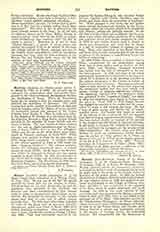

Bouvens, CHARLES DE, French pulpit orator, b. at Bourg in 1750; d. in 1830. At an early age he embraced the ecclesiastical state and became vicar-general to his fellow-townsman, Monseigneur de Conzie, Archbishop of Tours. When the Revolution broke out, he refused to take the required oaths, and followed his archbishop to Germany. The latter having died in the vicinity of Frankfort, de Bouvens went to London, where the Bishop of Arras, brother of Archbishop Conzie was minister to the Comte d’Artois, later Charles X. Here he delivered, either in the church of St. Patrick or in the chapel built by the Sulpician Bourret in King Street, several funeral orations in the presence of Louis XVIII and the Comte d’Artois. The best known of these orations are: the one on Marie-Josephine-Louise of Savoy, wife of Louis XVIII; that on the Duc d’Enghien (1804), and the one on the Abbe Henry Allen Edge-worth de Firmont, confessor of Louis XVI. These eulogies were printed at Paris for the first time in 1814, being issued separately. A complete edition in one volume appeared at Paris in 1824 under the title: “Oraisons funebres”. The volume contains, besides the addresses mentioned above. a funeral oration on Louis XVIII. At the time of the Restoration (1815), he returned to France and was named chaplain to Louis XVIII. In 1828 the infirmities of age forced him to resign, but he retained the title of Honorary Chaplain. The Revolution of 1830 drove him from Paris, and he died shortly afterwards.
A. FOURNET

